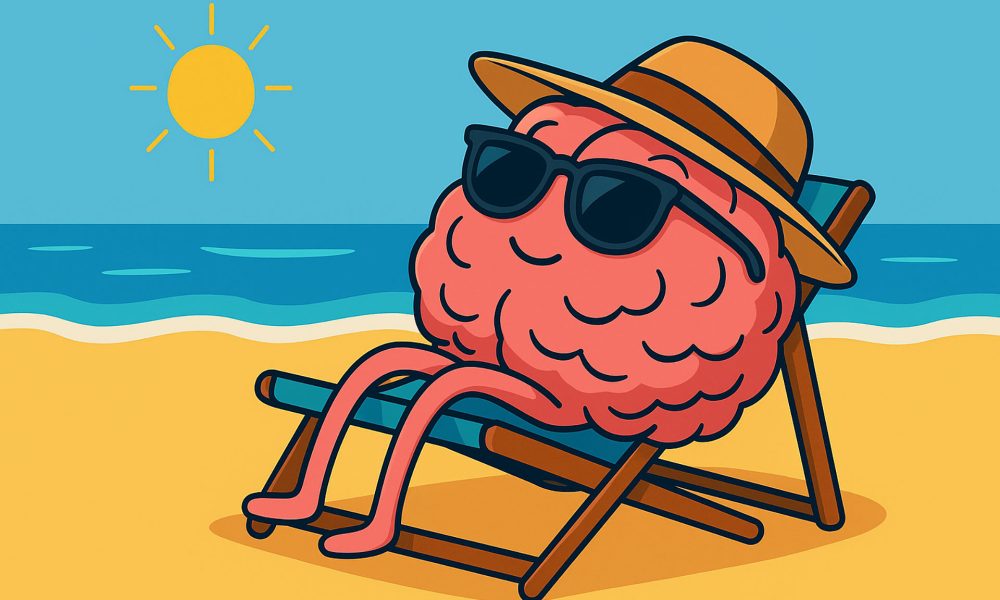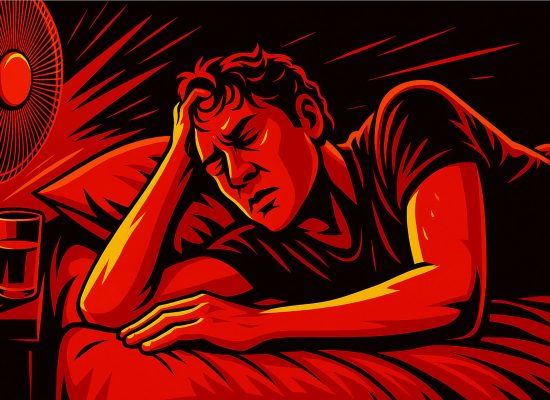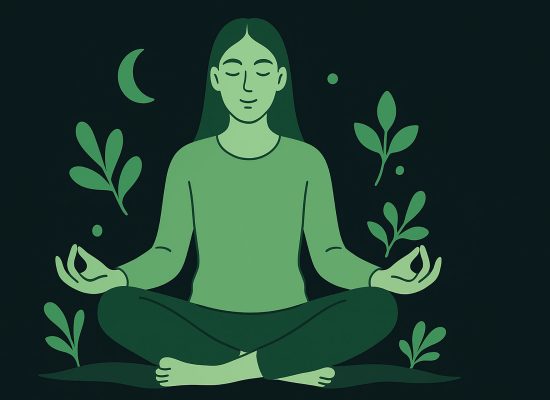In a world that praises constant hustle, finding time to truly rest can feel like a lost art. Yet modern research and ancient wisdom both point to a powerful truth: rest is not a luxury—it’s a vital foundation for mental clarity, emotional resilience, and sustainable success. The science of rest and relaxation shows that strategic downtime supports everything from memory and decision-making to creativity and immune function.
Table Of Content
In this guide, we’ll explore why embracing rest isn’t lazy—it’s essential. Through cultural traditions, scientific insights, and practical strategies, you’ll discover how meaningful breaks can transform your productivity, mental health, and overall well-being. Let’s dive into the real power of doing nothing—intentionally.
Why Doing Nothing Feels So Hard — and Why It Matters
When was the last time you truly rested—without feeling guilty? Hard work is so deeply ingrained in American culture that a survey by financial company Sorbet found 62% of Americans didn’t use all of their time off last year. In a society that glorifies hustle, it’s easy to overlook the importance of relaxation.
But more and more, people are realizing rest isn’t lazy—it’s essential. Science and tradition agree: high-quality rest supports mental clarity, emotional resilience, and long-term health. Let’s explore the benefits of rest and how other cultures integrate meaningful rest into daily life.

Cultural Wisdom, Modern Science: 7 Global Rest Rituals That Work
Many cultures have long valued something we’re only beginning to reclaim: rest is the foundation of a good life. These global rituals highlight the deep connection between tradition and the science of rest and relaxation.
- Dolce Far Niente (Italy) – This Southern Italian philosophy literally translates into “the sweetness of doing nothing.” It’s more than a slogan, it’s a way of living that is centered in savoring the present- not worried about what comes next.
Try it: Go out for a leisurely lunch or enjoy after-work drinks with friends—no agenda, no phone, no rush. - Niksen (Netherlands) – Niksen is the Danish practice of actively choosing to do nothing. According to Olga Mecking, author of Niksen: Embracing the Dutch Art of Doing Nothing, that means enjoying a pause without having a specific outcome in mind.
Try it: Let yourself daydream during a break. Don’t fill every pause with productivity. - Siesta & Midday Rest (Spain, Latin America) – The Siesta is a common tradition, especially in areas with warm-weather. This practice of taking a short nap after a midday meal is a rejuvenating reminder that bodies are not wired for nonstop output.
Try it: On weekends or days off, allow yourself to nap after lunch and recharge your system. - Shirin-yoku Forest Bathing (Japan) – Shirin-yoko, or forest bathing, is a multi-sensory immersion in nature, proven to lower cortisol. It involves walking at a leisurely pace in nature, keeping your attention focused on what you are experiencing.
Try it: Spend 20 minutes in a local park or forest, using all your senses to tune into the environment. - Friluftsliv (Norway) – Friluftsliv means “Open-air living.” It’s less structured than Shirin-yoku, with a focus on getting outside daily. This practice is less about specific adventures, focusing instead on embracing whatever may be happening outside every day.
Try it: Invest in weather-appropriate gear and step outside each day—even if it’s just for a short walk. - Fika (Sweden) – Sweden has turned taking a coffee break into an art. Fika is more than a hot cup of Joe, it’s a chance to socialize, pick up an indulgent treat, and take a mindful pause.
Try it: Make your coffee break mindful. Invite a friend or colleague and fully enjoy the pause.

The Science Behind Rest: How It Affects Your Brain and Body
Rest isn’t just a luxury; it’s a biological necessity that profoundly impacts both our mental and physical health. Scientifically, rest and relaxation activate the parasympathetic nervous system, often referred to as the “rest and digest” system. This activation helps lower heart rate, reduce blood pressure, and decrease stress hormone levels, fostering a state of calm and recovery .
Moreover, quality rest enhances cognitive functions such as memory consolidation, decision-making, and creativity. During restful states, the brain processes and stores information more effectively, leading to improved mental clarity and productivity . Physically, rest supports immune function, aids in muscle repair, and regulates appetite, contributing to overall well-being .
How Much Rest Do You Actually Need to Stay Mentally Sharp?
You may know adults need 7–9 hours of sleep—but that’s just one piece of the puzzle. To experience the full benefits of rest, you also need short, intentional breaks throughout your day.
Recent research into the science of rest and relaxation highlights that our brains follow natural work-rest cycles called ultradian rhythms. Taking a five- to fifteen-minute pause every 90 to 120 minutes not only protects mental health and rest but also sharpens focus and emotional regulation.
Rest and Productivity: Why Taking Breaks Boosts Performance
Contrary to the hustle culture narrative, incorporating regular breaks into your workday can significantly enhance productivity. Research indicates that short, intentional pauses help maintain focus and prevent burnout, leading to sustained performance throughout the day. For instance, the 52/17 rule suggests working for 52 minutes followed by a 17-minute break, optimizing mental agility and efficiency.
These breaks are not merely downtime; they are strategic tools that support mental health and rest. Engaging in activities like stretching, brief walks, or mindfulness exercises during these intervals can rejuvenate the mind, reduce stress, and improve overall well-being. By valuing the importance of relaxation, we not only enhance our immediate work output but also invest in our long-term health and productivity.

The 7 Types of Rest Your Brain and Body Need
Dr. Saundra Dalton-Smith, physician and work-life integration researcher, transformed our understanding of the science of rest and relaxation with her 7 Types of Rest framework. If you’re sleeping enough but still feel drained, this may be why. Embracing all seven types strengthens your overall resilience and allows you to experience the true benefits of rest, beyond just sleep.
- Physical
This type of rest involves letting your body relax in a passive or active way. This can look like getting a full night’s sleep or taking a nap, but it also includes gentle movements like restorative yoga.
- Mental
Mental rest doesn’t require you to completely unplug or plan a weeks long vacation. Scheduling short breaks every few hours can help. If you struggle to turn your mind off at the end of the day, try keeping a note pad near your bed to write down ideas or thoughts as they arise. Niksen or Dulce Far Niente are both great ways to practice mental rest.
- Sensory
In our fast paced, plugged in life our senses can be over whelmed. This form of rest can be as simple as closing your eyes or taking a break from screens and media. It can also look like leaving your phone in the other room before bed and enjoying some completely unplugged time at the end of the day.
- Creative
This type of rest is especially helpful if you do a lot of problem solving or work in a creative field. Creative rest is about connecting with the beauty around you and letting it inspire you. Getting in to nature is a great way to engage with creative rest (forest bathing, anyone?). A trip to a museum or a great piece of literature are also great ways to get the benefits of creative rest.
- Emotional
This style of rest requires space to express your feelings and live authentically. This can be one of the most challenging types of rest to give yourself, but a regular mindfulness or journaling practice can help.
- Social
Social rest is all about spending time connecting with the people that light you up. Make sure you schedule regular time with supportive people who light you up, and engage fully in positive memory making.
- Spiritual
Spiritual rest connects you to a sense of belonging in the world through the cultivation of purpose and love. This can look like meditation, prayer, and involvement in a spiritual community you align with.
When Rest Is Not Restorative: What the Science of Rest and Relaxation Can Teach Us About Recharging?
Have you ever spent a weekend binging The White Lotus, only to still feel drained come Monday? That’s because not all rest is equal. The science of rest and relaxation shows that only certain forms of rest actually restore our systems. Without meaningful downtime, the importance of relaxation gets overlooked, and instead of feeling refreshed, we end up carrying even more mental fatigue into the week.
What low quality rest looks like:
- Passive screen time (doomscrolling, binging) keeps your brain stimulated, not restored.
- Guilt-laden rest prevents the brain from fully shifting into recovery.
- Overwork/long vacation cycles create burnout that can’t be healed with occasional time off.
- Multitasking during breaks (checking Slack or emails) cancels out the benefits of the pause
What High Quality Rest looks like:
- Intentional, uninterrupted downtime activates the default mode network (DMN), supporting memory, creativity, and emotional regulation.
- Spending time in nature improves mood, focus, and cognitive function.
- Short naps (10–20 minutes) quickly restore alertness.
- Mindfulness and meditation improve memory, attention, and mental clarity—even in short sessions.
- Low-effort, low-focus activities like walking or showering support subconscious problem-solving.
- Regular, deliberate breaks (not social media scrolls) enhance learning and prevent burnout.

More Effective Ways to Restore Mental Health Through Rest
Small shifts toward mindful downtime can amplify the benefits of rest and make relaxation a regular, joyful part of daily life—not just something reserved for vacations. To deepen your mental health and rest practices, try one of these simple but powerful strategies:
- Yoga Nidra – a “Non-Sleep, Deep Rest” practice like this Yoga Nidra practice in the Siddha Mediate app can help you experience deep relaxation without grogginess.
- Mindful bathing – Focus on the sensation of warm water as you soak, free from distractions.
- Journaling – Processing emotions on paper helps clear the mind.
- Mindful sipping – A hot drink encourages slowing down and savoring.
- Guided breathwork or body scans – The Siddha Meditate app offers easy ways to build this into your day.
How Meditation Supports Deep Rest and Lasting Relaxation
Incorporating meditation into your routine is one of the simplest ways to amplify the benefits of rest. Meditation activates the parasympathetic nervous system—the same system engaged during deep relaxation—which helps reduce stress hormones, slow the heart rate, and promote emotional recovery. Research into the science of rest and relaxation shows that even brief meditation sessions can improve mental clarity, mood regulation, and physical restoration.
Mindfulness practices like body scans, breathwork, and Yoga Nidra create intentional pauses that support both mental health and rest. Instead of relying solely on sleep or occasional vacations, meditation builds a daily habit of resetting the mind and body. Tools like guided meditations on the Siddha Meditate app make it easy to weave moments of stillness into even the busiest schedules, reinforcing the importance of relaxation for sustainable well-being.
How Rest Helps You Recover from Burnout
Burnout recovery isn’t just about slowing down—it’s about strategic restoration. The benefits of rest go far beyond momentary relief. By tuning into the science of rest and relaxation, we learn that regular, purposeful pauses rebuild cognitive strength, improve emotional regulation, and help us sustain long-term productivity. According to the science of rest and relaxation, chronic stress can accelerate aging, suppress immune function, and cloud your thinking.
Occupational therapists often recommend “pacing”—working with your body’s natural energy cycles instead of against them. To support mental health and rest, block screen-free time, schedule real downtime (not just open calendar space), and use mindfulness tools like the Siddha Meditate app for mini resets.
Even small changes—like requesting quiet hours or asynchronous workdays—can dramatically boost your rest and productivity as you heal from burnout.

Start Small: One Small Habit For More Rest and Productivity
Rest is a practice—not just a vacation. Siddha Meditate makes it easy and enjoyable to incorporate high-quality rest into your daily life. Even small changes improve clarity, emotional resilience, and stress levels. Your mind and body will thank you—immediately and long-term. To support your journey, Siddha Meditate also offers Sleep Meditation Classes and Deep Relaxation Sessions designed to help you unwind, recharge, and experience the full benefits of rest.
Start your personalized Mental Fitness Challenge today for guided practices that restore rather than distract.
FAQs about Benefits of rest
1. How does rest improve productivity?
Rest enhances productivity by allowing the brain to recover and process information more effectively. The science of rest and relaxation shows that taking short, intentional breaks can boost focus, creativity, and decision-making, leading to improved performance.
2. What are the mental health benefits of rest?
Regular rest supports mental health by reducing stress and preventing burnout. Incorporating various types of rest—such as emotional, sensory, and spiritual—can improve overall well-being and resilience.
3. Why is relaxation important for overall health?
Relaxation activates the body’s natural relaxation response, lowering heart rate and blood pressure. This state promotes healing and balance, highlighting the importance of relaxation for maintaining physical and mental health.
4. How does meditation contribute to rest and relaxation?
Meditation fosters deep rest by calming the mind and reducing stress. Practices like mindfulness and Yoga Nidra can enhance the benefits of rest, supporting mental clarity and emotional balance.








One Comment
Comments are closed.